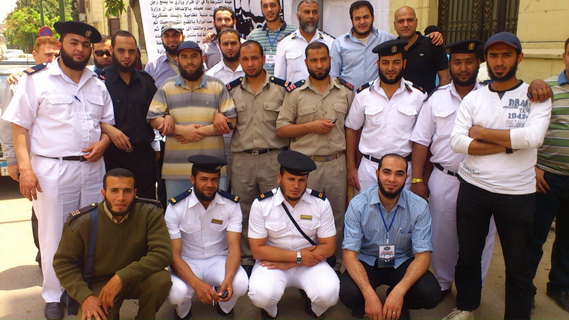A quick evaluation of nuclear capabilities in the Middle East makes it clear that the region is hosting one major military nuclear state, Israel, and one major nuclear-ready state: Iran. However, the list will be inconclusive if we do not consider that in the course of the past 40 years a longer list of states have at some point aspired to some sort of nuclear capability: Egypt, Iraq, Libya, Algeria, Saudi Arabia and Turkey. Last December, Gulf Cooperation Council states approached International Atomic Energy Agency experts and talked about their plans for a joint civil nuclear program. The Saudis were in this business much earlier than other Gulf states. When Pakistan tested its nuclear bomb in 1998, there were rumors it might have received Saudi money and might want to help the Saudis develop a nuclear capability. In view of the relationship Pakistani scientist Abdul Qadeer Khan established with Iran and North Korea, we cannot rule out the same kind of deal with the Saudis. The question is whether we are facing a chain reaction phenomenon in the Middle East, or is it simply an energy phobia that is driving nations toward nuclearization. Is it because of serious concerns about the future of energy supplies in the region? Is it a reaction to Israel’s military nuclear capability, or a reaction to the Iranian nuclear program? The answer is probably all of the above. When it comes to the aspiration for a nuclear free Middle East, in principle no one disagrees. Some 15 years ago, at the end of the Cold War, this seemed more likely, but today nuclear technology acquisition is the hottest topic among Middle East nations – even among those that had abandoned such plans. For instance, Egypt and Iran are vocal in their wish for a nuclear free Middle East, but neither apparently wants to take steps to forego its nuclear program. On the contrary, progress by one provides the other with more incentive to seriously follow up. Several additional states in the region are trapped in a chain reaction competition while hiding under the umbrella of a “non-nuclear Middle East. Scholars agree that a nuclear-free zone is less likely to emerge where there already exists more than one nuclear state. In the Middle East, obviously, there is only Israel. The rest are looking for a peaceful nuclear capability, but when confronted by disapproval from the international community they all point to one state, Israel. The question is why nations with peaceful nuclear intent need to point to Israel – which evidently and by all standards has no peaceful nuclear capability at all. The Pakistani nuclear bomb did not have a major impact on Iran’s determination to persist in its nuclear program. Perhaps having Pakistan’s technological support through the A. Q. Khan back-channel was the main reason not to see Pakistan as a threat, even though the two countries were at odds about the Taliban and in the conduct of their foreign policy, particularly regarding their relations with the US. Iran has never said its nuclear program is to counterbalance the Israeli military nuclear capability in the region, but it has always criticized the IAEA and other international organizations for their double standard and discriminatory behavior in comparing Iran with Israel. One can assume that Iran’s nuclear program cannot be a rational reaction to an already existing military capability, because when the Iranian program started under the shah it had a green light even from Israel. It is fair to say that the Islamic Republic became heir to the shah’s nuclear program and then fell into a nationalistic pattern to justify the plan. We can live with this justification as long as Iran’s program does not enter a military phase. But what justifies other Middle Eastern states’ nuclear aspirations? We should probably look for an alternative logic. The Saudis are approaching the Russians to seek nuclear military and energy cooperation; President Vladimir Putin has apparently already offered the kingdom Russian expertise in the field. Russia is of course prepared for such an endeavor and would probably get it done much faster than its pending contract with Iran. No one blames the Russians, who after all are trying to restore the power and influence of the glorious Soviet past. In those days, the Arab world always used the Soviets for its own strategic goals – so why not try Russia now? In the 1960s and 1970s, the Kuwaitis approached the Soviets in order to exercise pressure on the Americans to sell them the arms they badly wanted. Turkey is another interesting case. Despite being a NATO ally and enjoying the advantage of NATO’s nuclear umbrella, Turkey too is interested in nuclear adventures. To no one’s surprise, the Turkish media reported that Iranian Foreign Minister Manouchehr Mottaki in his February 2007 visit announced Tehran’s willingness to cooperate with Ankara in various fields, including nuclear energy production. This showed that Iran has no problem with nuclearization of the region “for peaceful purposes, and will even cooperate if asked. Egypt, too, has already restarted its nuclear program. Last September, the government announced plans to build a nuclear plant on the Mediterranean coast. Thus, several states in the Middle East are either restarting or getting involved in fresh nuclear programs. The Iranian nuclear standoff appears to be sparking a new wave of nuclear development in a region that is already overwhelmed by complex problems. Whatever the motivation, the decision by a group of states in the region to go nuclear could be disastrous if at some point they decide to entertain military options.
Jalil Roshandel is associate professor and director of the security studies program at the political science department of East Carolina University. This commentary first appeared at bitterlemons-international.org, an online newsletter.

